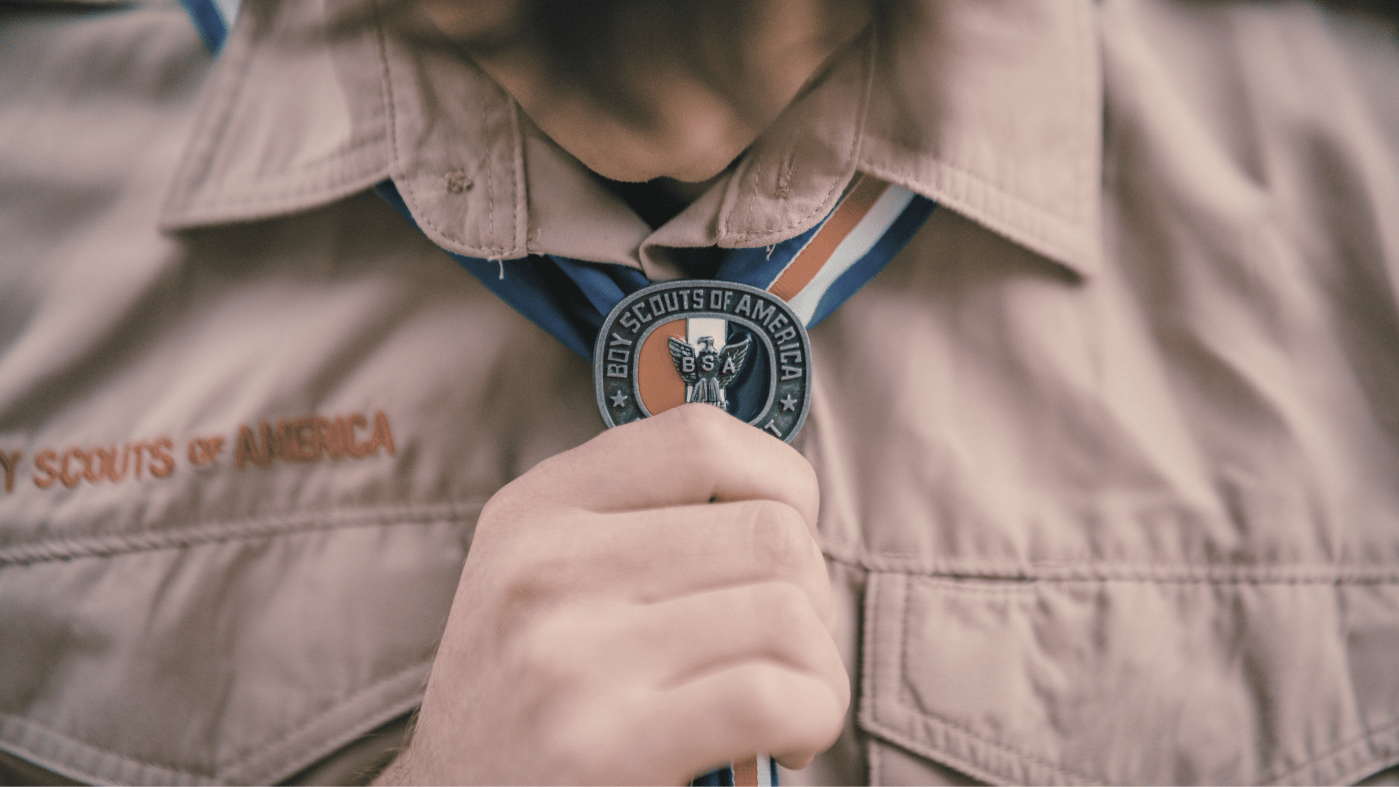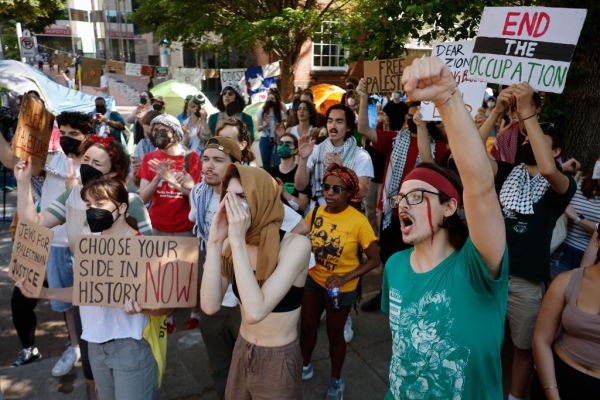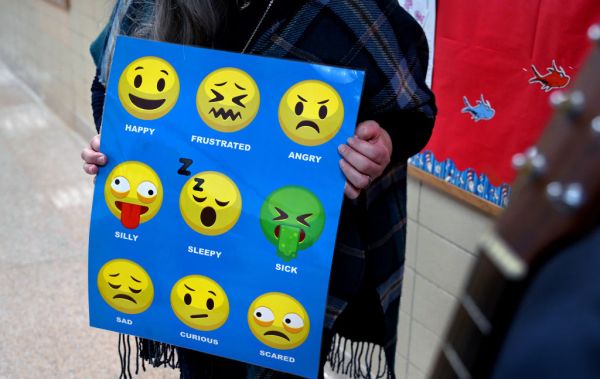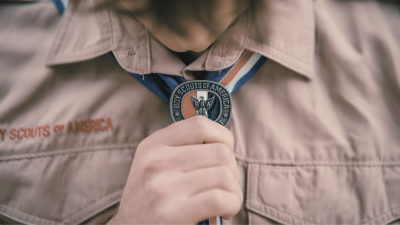Earlier this month, the Boy Scouts of America (BSA) announced it will change its name to “Scouting America” to demonstrate its continued commitment to “inclusivity.” This is part of a broader trend of widening membership: BSA first allowed openly gay members in 2013, and openly gay adult leaders two years later. Though it has held a firm line on denying membership to fully irreligious atheists, BSA first allowed female members to join Boy Scout Troops in 2019.
In striving to be all things to all people, however, Scouting has failed to make a case for its own continued existence—and is on the decline. The number of Boy Scout troop members has halved in just a few years, a trend that shows no sign of reversal. But BSA’s fall isn’t just empirical. Even if numbers rebound, Scouting seems to have lost its way.
In Scouting, I learned skills both practical and moral from skilled adult leaders, including my former scoutmaster, Charles Hasbrouck, who recently passed away. He was an institution all by himself, going on intense outings into his 80s and leading more than a full biblical generation of Scouts in his 46 years as scoutmaster. My journey from Cub Scout to Eagle Scout (which came in 2012, the centenary year of Scouting) was under the guidance of someone who I think can properly be called “old-school,” someone whose example is fading from the consciousness of those who lead Scout troops today.
We Scouts, under leaders like Hasbrouck, learned about ourselves and the world around us through a directed curriculum that provided room to explore varied interests. I was never an exemplary Scout. I didn’t earn every merit badge, serve in every leadership position, or particularly excel compared to other exceptional Scouts I knew. But Scouting helped form me as a citizen, a son, and eventually a man in ways I would not trade for anything. It provided male role models; rugged, outdoor, skill-based activities; and exposure to the rhythms and rituals of a storied tradition.
The Scouting organization, at least in its American form, is nominally religious and pluralistic, but in its particulars rooted in the American tradition: To even earn the preliminary rank of “Scout,” one had to demonstrate knowledge of American civic life, respect for the American flag, as well as the Scout Motto, Oath, and Law, which all enjoin a Scout to be a virtuous citizen with duties to God and country. At its best, Scouting is one of the first experiences a young man can have of formal membership in a structured community.
Outside of traditional churches, few of the many communal organizations, groups, and programs available to young men today prioritize the discipline and structure Scouting hopes to inculcate. If I were enrolled in a local recreational league soccer program, for example, I might not be allowed to play in a game if I skipped all my practices, but it is unlikely that the team would have any sort of process for disciplining or reprimanding me for my absences or behavior. In contrast, I have poignant memories of Scouts (both myself and others) being called to account both informally and formally before disciplinary hearings of adult leaders and senior Scouts for untoward behavior.
In other words, in Scouting a young man can both learn practical, outdoorsy skills and simultaneously participate in a structured community with real buy-in, real consequences for violating membership norms, and real mechanisms for disciplining those who divert from expectations. In a world so frequently devoid of the kind of associational life that older thinkers like Alexis de Tocqueville praised and more recent thinkers like Robert Nisbet and Robert Putnam eulogize as passing away in American civic life, Scouting has long stood as a striking exception—a pathway for young boys to become young men, attached and loyal to their local community.
Importantly, this development was largely sex-segregated. Boys were often left to their own devices, to organize their own “patrols” within the larger “troop,” to take the helm in logistics and leadership, to compete and resolve disputes—all largely divorced from the normal sexual tension of adolescent life one would ordinarily find in co-ed programs and school. The opportunity to focus on developing skills and habits of mind, body, and character without the risk of shame in front of a crush or potential date was relatively unique and welcome.
Scouting has ceased to advocate for its own rugged, wilderness-focused, masculine-cultivating character, and has abandoned its accompanying mission to train up young boys for manhood and masculine citizenship. Young women have been permitted to join Boy Scout troops as full members since 2019, and to earn the coveted rank of Eagle Scout alongside their male counterparts. This is a fundamental shift in the mission of the program, and one from which I do not expect it to recover.
To produce the kinds of citizens that Scouting has long suggested it hopes to cultivate, sex-specific awards of distinction are not only desirable, but necessary. As John Ehrett recently argued, the longstanding name of “Boy Scouts” indicated much, such as “that there are such things as boys, and their welfare is worth consciously pursuing. What’s more, their welfare is worth pursuing in the context of a single-sex program, because such spaces promote boys’ growth and flourishing in a unique way.”
In striving to be all things to all people, Scouting has failed to make a case for its own continued existence.
I do not mean by this claim to denigrate the contributions of women to the Boy Scouts. I benefited immensely from the contributions of women who came into our troop as adult leaders. Sisters of Scouts were often present in our troop meetings and outings, and branches or wings of Scouting have been open to young women for many years. Scouting has long maintained a “Venturing” program, with “Venture Crews” operating parallel to Boy Scout troops, with their own mechanisms of advancement and leadership. Venturing previously provided a path for young women interested in the virtues of Scouting to come alongside BSA troops and participate in their activities and mission and earn their own distinctive Venturing awards and honors. But in striking this balance between its distinct programs, the BSA previously affirmed the necessity and goodness of preserving the character of its main focus.
Its recent changes have repudiated its own distinctive virtues.
This point could perhaps be best made by comparison. Much has been written lately about the crisis in higher education. Declining student enrollment has hit colleges and universities hard, small colleges perhaps most of all. In a piece for the magazine Local Culture, Mark T. Mitchell (dean of academic affairs at Patrick Henry College) argued only colleges with missional distinctives will survive. Parents and students will require a reason to choose Expensive Liberal Arts School A over Expensive Liberal Arts School B, C, or D. If those schools are functionally indistinguishable, what can motivate that decision? If school B is known for its rigorous adherence to its faith statement, C for its exceptional pre-law preparation, and D as a rigorous pipeline to graduate studies, perhaps a student would have a reason to choose one over the others.
The problem, of course, is that schools, chasing enrollment, have often made themselves indistinguishable. By pursuing the same flat program of professional preparation (adding nursing and engineering programs, loosening admissions requirements, moving away from traditional faith commitments, etc.) to appeal to more students, those schools have paradoxically made themselves less appealing.
Scouting now seems to be suffering from the same problem. Staring down the barrel of declining membership, declining interest, declining investment by former Scouts, as well as increased costs borne from expanding their offerings, the erstwhile “Boy Scouts of America” has flattened itself. There is little that would motivate me to enroll my son (or daughter, as it happens) in Scouting as opposed to any other recreational activity, because there is now little that distinguishes it from any other co-ed after-school interest group or club.
The one possible saving grace for Scouting is the relative level of autonomy offered to local troops. It has always been the case that, though Scouting had a particular “vibe” (outdoorsy, wilderness training), each individual troop was free to participate in the broader organization as it saw fit, to host the outings it chose, to adapt the program to the interests and needs of its community. Thus, within the flattening, boring mass of contemporary Scouting, there will likely remain some exceptional troops that will attract families. I fear, however, that these will increasingly be fewer and farther between as those like my former scoutmaster pass on, and those like me who might have returned to perpetuate those programs lose interest in an organization that seems to have lost its way.
I am not willing to say that Scouting as I knew it is “dead”—too many incredible leaders are still working to shape young men (and now young women)—but it is in its death throes. When the distinctives are lost, the appeal is lost. I cannot cling to much hope that the troop I knew and participated in will last long past the passing of its elders, that the programs I loved and enjoyed and will always remember fondly will continue, at least in the form that I remember them. It remains an open question whether Scouting can maintain its distinctive character with the changes pursued by BSA leadership. In the absence of this distinctiveness, Scouting could become one among many local curiosities that may persist through dogged determination but will hardly thrive.
As for me and my house, we will seek other organizations.






Please note that we at The Dispatch hold ourselves, our work, and our commenters to a higher standard than other places on the internet. We welcome comments that foster genuine debate or discussion—including comments critical of us or our work—but responses that include ad hominem attacks on fellow Dispatch members or are intended to stoke fear and anger may be moderated.
With your membership, you only have the ability to comment on The Morning Dispatch articles. Consider upgrading to join the conversation everywhere.